Tunapuna, a jewel of the east/west corridor
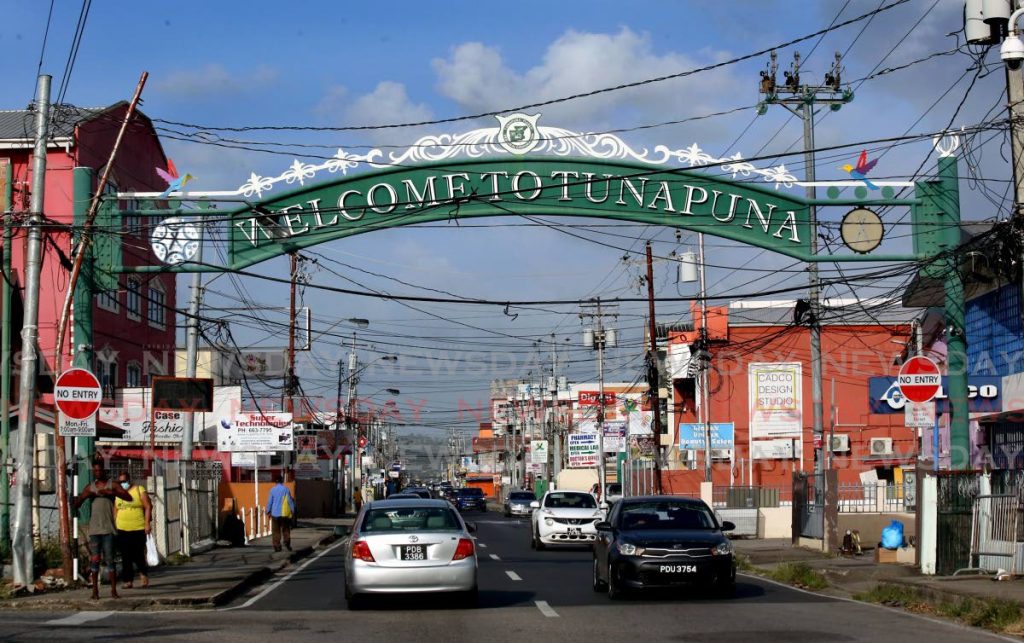
TUNAPUNA is prominent for several things, not least its political leverage as a constituency, the community watering holes, its cosmopolitan blend and the vast opportunities to shop at bargain prices.
It is a major point of transit as a thoroughfare from east to west, sandwiched between St Augustine and El Dorado.
Like Arima, Mucurapo, and many other places in Trinidad, the name Tunapuna pre-dates Columbus's arrival.
The Tunapuna River, one of 12 tributaries that flow into the Caroni River, would have fostered sustainable living for indigenous people, who joined their word "tona" meaning "water" or "river” with the suffix "puna/pona," meaning "upon." It maintains a community of First Peoples.
Tunapuna is the largest town and capital of the region of Tunapuna-Piarco, where more people live than in any other of Trinidad's nine regions, and which is the third most densely populated, after Diego Martin and San Juan-Laventille.
The 2011 census counted the region of Tunapuna-Piarco's population at 212,825, with 16,628 living in Tunapuna itself. The Elections and Boundaries Commission, however, lists some 24,650 electors in the parliamentary constituency of Tunapuna.
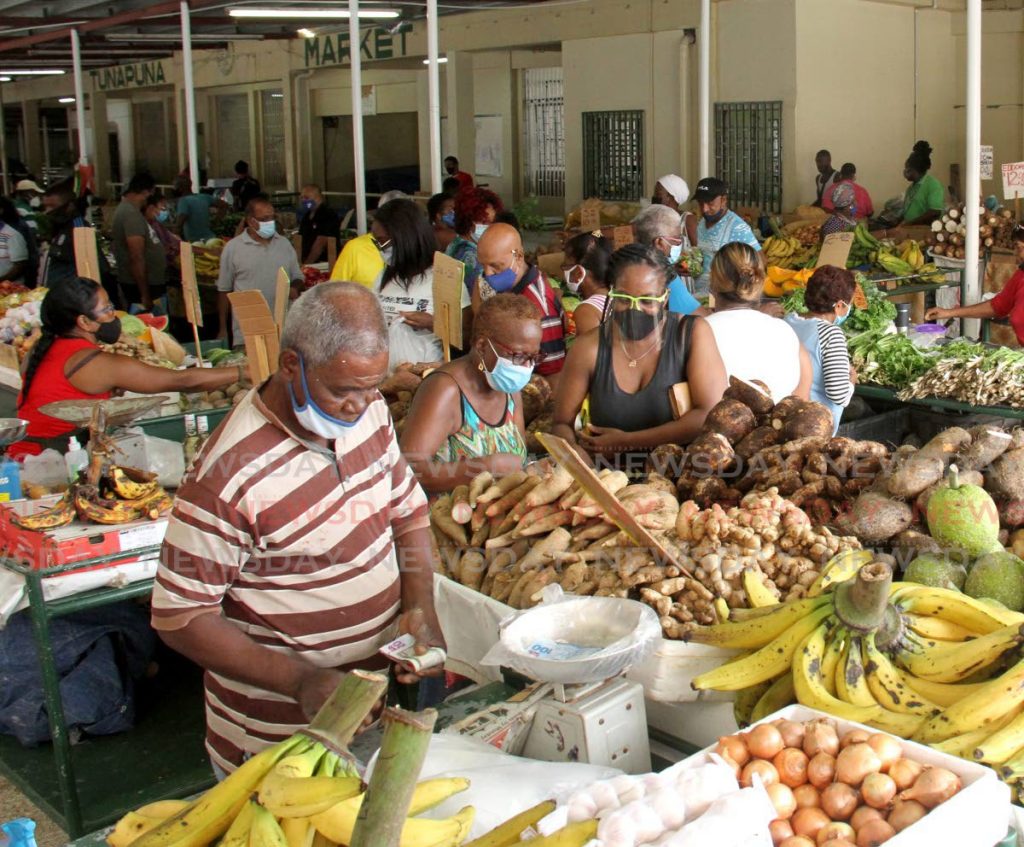
A decade ago, the census reported a near-balance of East Indian (5,576) and African (6,038) people living in Tunapuna, together with 3,714 people of mixed descent (African, East Indian and/or other), and a small scattering of Chinese, Indigenous, Caucasian, Syrian/Lebanese, Portuguese (fewer than 200) and 1,186 "not stated," but it omits Hispanics.
Some 14,623 people said they were born in TT, while another 792 listed as foreign-born, and 1,212 did not state.
But the census appears to be far outdated in terms of demographics. Since 2011, there has been a marked influx of foreign immigrants, renting and subletting, many home-owners noted.
“Not just here, but St Augustine, too. The whole landscape is changing,” Mr Kissoon, a life-long resident of Lashley St told Sunday Newsday.
Pre-covid19, short and medium-term opportunities began to open up to Venezuelan migrants, particularly women, many of whom took up work as bartenders and bar-backs at many of the town's popular bars, before the government-mandated cessation of all but essential business.
“I think at first, (about five years ago) people didn’t know how to react to all these people coming into the area,” The resident, a retiree said. “They’re mostly respectful and hard-working, though, so I think the attitude towards them is changing.
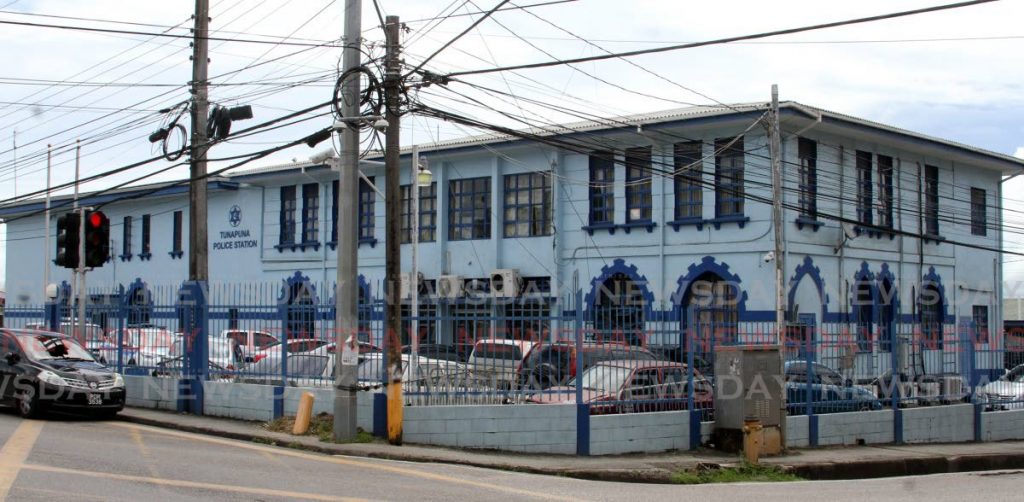
Kissoon said he loves Tunapuna because it has everything he wants and needs. “I drive in and out all the time but I do everything I need to do here in Tunapuna. Not every town has its own arch,” he quipped.
“I have good neighbours and mostly everyone seems to get along well.”
Tunapuna's ethnic composition is often cited as a reason why its own Carnival celebrations have endured for over 100 years.
While there is a scattering of houses in Tunapuna which rival those in the country's most affluent neighbourhoods, most people fall within the middle- and lower-income brackets.
Property values generally increase the closer they are to the Eastern Main Road and the Priority Bus Route.
More than bustling transit point
There are not many landmarks to awe visitors but the handful are exceptional. Business places line the main road and the early streets of Tunapuna. The heart of Tunapuna often triggers nostalgia, not just for its own residents but outsiders who once socialised at its several cinemas, like Palladium, which opened in 1918 and is now closed.
From Pasea and surrounding areas, there are unobstructed views of the Mt St Benedict Abbey, in St Augustine, which was built in 1912 and serves as a seminary, a drug rehabilitation centre and more curiously, the now 18-year-old Pax Yogurt Company, which delivers different flavours to supermarkets across the country.
There is an abundance of holy places, including the ASJA masjid, a few mandirs and Christian denominational churches, appropriately catering to one of the most inter-religious communities in the country.
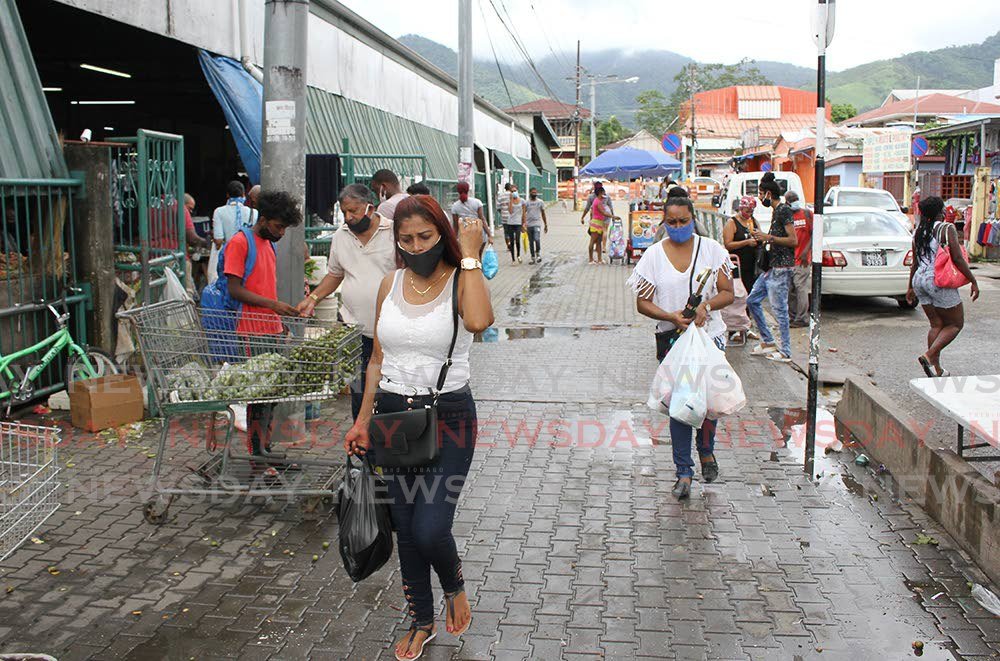
- Angelo Marcelle
Tunapuna has a fair share of renowned exports. For one, it boasts the birthplace of historian, essayist and journalist CLR James, who would be 120 today. James died in 1989 in England and was eventually buried in Tunapuna, where his legacy is immortalised with a tombstone shaped like a book, containing an inscription from his 1963 memoir Beyond a Boundary.
Lakshmi Persaud, an author of five novels, living in London, was born in Pasea Village, and like thousands of other eventual achievers, passed through Tunapuna Government Primary School.
Acclaimed composer, writer and director, Donald Heywood, is one of the country's earliest and most notable exports, hailing from Tunapuna. Born in 1986, he canonised the town, writing the song Tuna Puna Trinidad for post-war UK pop star Petula Clark. Heywood is better remembered, however, for composing the song I'm Coming Virginia, which was recorded by some of the most famous jazz musicians of the time and becoming a staple in the genre.
TT's second highest capped international footballer Stern John is a more recent and more recognisable export of Tunapuna, holding special acclaim as this country's all-time leading goalscorer, with figures to rival the world's greats.
Like several other former TT footballers, John is recognised as a cult figure in parts of the UK, where he played professionally for many years.
Residents on crime: Only so much police can do
The Tunapuna police station on the Eastern Main Road looks spacious from the outside, even in proportion to the town's population.
Activity in recent days at the station has been subdued nearly to a freeze in light of the state of emergency.
Tunapuna, like many other areas in Trinidad, faces spontaneous spikes and spells in serious criminal activity, largely attributed to gangs.
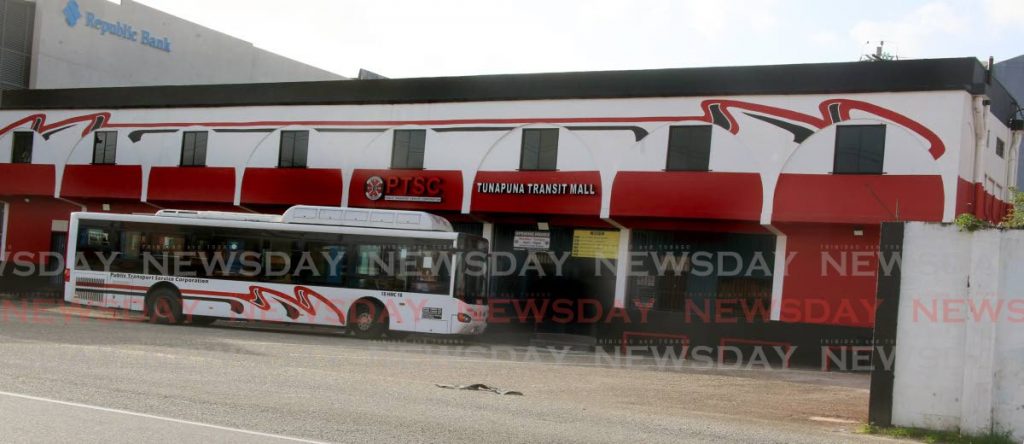
Some residents say the influx of "outsiders" may have been a contributing factor. But Tunapuna, in fact, faced high crime rates well before the arrival of Venezuelans in the latter part of the past decade.
Tunapuna and Arima are part of the police's Northern Division, which consistently reports the highest number of murders annually. The division's figures, in terms of violent crime, almost always exceeds the Western, North-Eastern and the Port of Spain divisions, which latter covers Laventille and Beetham Gardens – two communities arguably far more stigmatised.
In the Northern Division, the Arima Police Station tends to report more murders and crimes like fraud, while the Tunapuna Police Station, which covers a smaller area, usually sees a disproportionately high rate of robberies, burglaries and narcotics offences being reported. Arima has a population of 33,606 according to the 2011 census. However, areas covered by police stations are not necessarily limited by boundaries of towns and cities.
Last June, Tunapuna and the wider community were rocked by the double murder of a man and his two-year-old daughter, who were shot and killed as he drove along Achong Trace.
Two weeks before that, there was another horrific double murder, involving the shooting death of a mother and her adult son inside their Cornelius Street home.
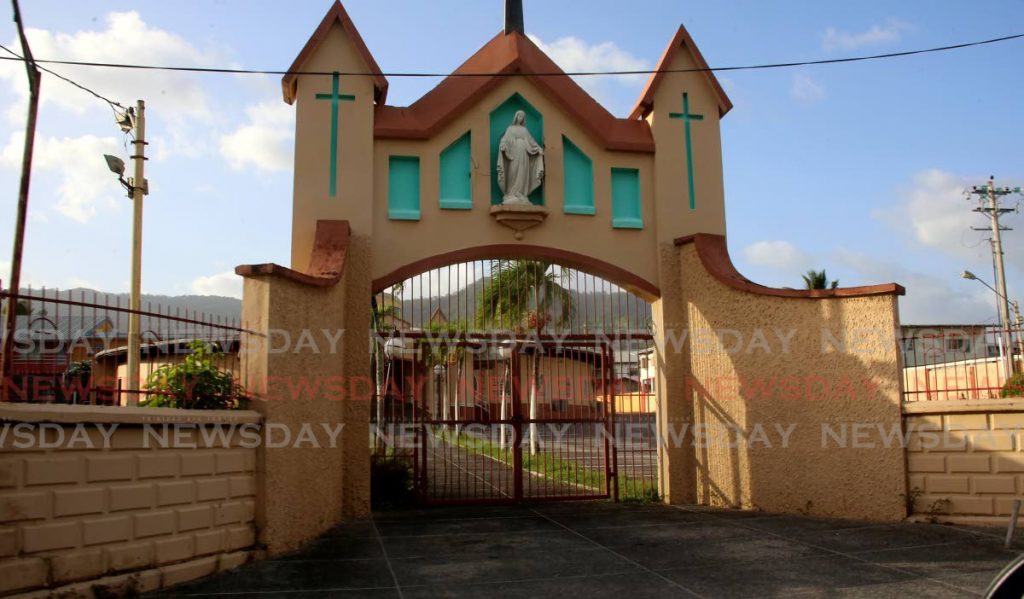
Then, two days before Christmas, another man was killed while taking out the trash. There were numerous other murders linked and unlinked to gangs in 2020.
Newsday caught up with Rosanna Jaggernauth, grandmother of the toddler and mother-in-law to the father, Stephon Mc Leod, who were killed in his car last year.
"I feel no safer now than (when the shootings occurred)," she said, saying anyone around her could be another target.
Jaggernauth said crime has not subsided over the past year. But that's not why she feels unsafe. Although the police have offered a $25,000 reward in an effort to obtain information on the crime or the assailants no one has been charged for the grisly crime.
That said, she believes the police are doing enough, if the regular patrols are anything to go by, and are not to blame for spikes in crime.
Jaggernauth works with the Community-Based Environmental Protection and Enhancement Programme (CEPEP), which has suspended operations owing to the pandemic but said it would continue to pay salaries. However, Jaggernauth lives with her four adult children, who are unemployed.
Apart from job insecurity, an increasing number of residents are simply unable to live at a reasonable standard, given recent salary cuts.
Idleness, regardless of opportunities presented, has also been a problem in the area since before the virus reached local shores, the residents say.
"There are too many children on the streets, not doing what they supposed to do. So they getting involved in all kind of things," Jaggernauth told Newsday.
Political leverage not self-evident
Dealing with the escalating crime should be at the top of Tunapuna MP Esmond Forde's agenda, a resident said, but issues surrounding poverty, like hunger and increased access to employment ought to be up there also, since the circumstances of the pandemic are becoming "life and death."
The People's National Movement's (PNM) Forde won in the 2015 general election and successfully defended his seat in the 2020 election.
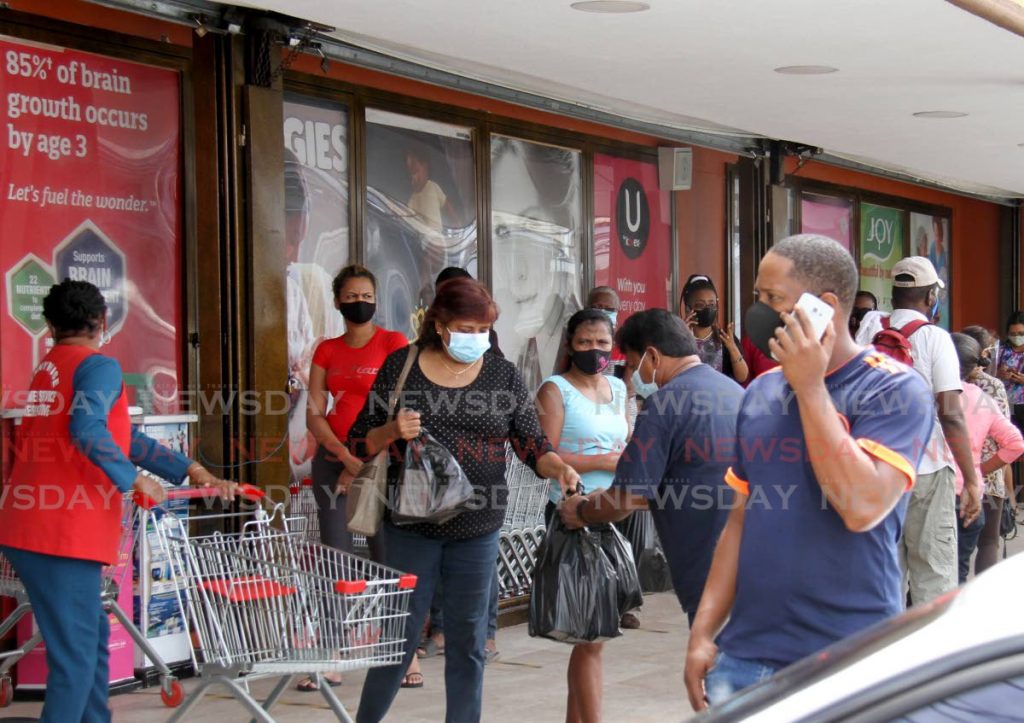
Forde replaced then Congress of the People (CoP) leader Winston Dookeran, who took the seat away from the ruling PNM in 2010, helping the People's Partnership coalition into office.
Even in previous general elections, Tunapuna has consistently been regarded as the "seesaw" of constituencies. So the aura of an election season is especially conspicuous in Tunapuna.
Political parties sometimes use carparks and other venues in and around the town centre to host larger rallies, and otherwise expend much of their resources to win over constituents to claim the precious marginal seat.
Marginal seats, many people believe, generally benefit directly from the mere fact that they can swing either way.
Issues with water and power are not as dire as in many other parts in the country, residents acknowledged. Improvements can certainly be made to improve on infrastructure and supporting strategies to alleviate idleness among youth, barring the pandemic, they said.
Covid19 has slowed and eventually ceased the movement of everything deemed non-essential, putting the private and public sectors in a collective state of uncertainty. Tunapuna, which relies heavily on commerce, is no different.
So, residents say they don't expect miracles from their MP at this point but they expect to see him outside of both the pandemic and "election season."
Tunapuna represents little bits of the country packed in one place.
And as densely packed as it is, there always seems to be a place available for rent.
It is close enough to Port of Spain in terms of driving distance but far enough for rent prices to be far more affordable than communities in and outside the capital.
It may not be glamorous, but Tunapuna is practical.

Comments
"Tunapuna, a jewel of the east/west corridor"